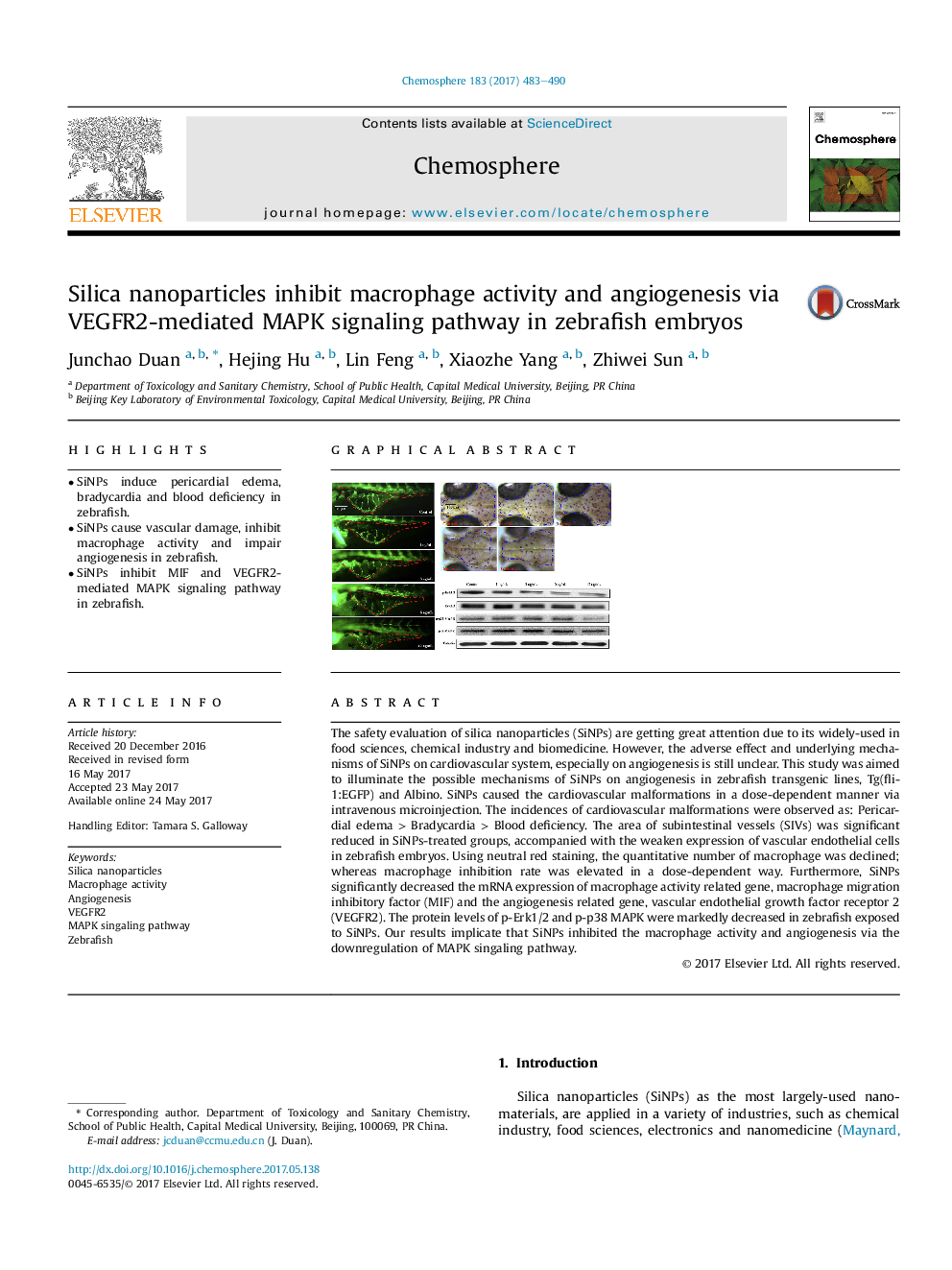| Article ID | Journal | Published Year | Pages | File Type |
|---|---|---|---|---|
| 5745978 | Chemosphere | 2017 | 8 Pages |
â¢SiNPs induce pericardial edema, bradycardia and blood deficiency in zebrafish.â¢SiNPs cause vascular damage, inhibit macrophage activity and impair angiogenesis in zebrafish.â¢SiNPs inhibit MIF and VEGFR2-mediated MAPK signaling pathway in zebrafish.
The safety evaluation of silica nanoparticles (SiNPs) are getting great attention due to its widely-used in food sciences, chemical industry and biomedicine. However, the adverse effect and underlying mechanisms of SiNPs on cardiovascular system, especially on angiogenesis is still unclear. This study was aimed to illuminate the possible mechanisms of SiNPs on angiogenesis in zebrafish transgenic lines, Tg(fli-1:EGFP) and Albino. SiNPs caused the cardiovascular malformations in a dose-dependent manner via intravenous microinjection. The incidences of cardiovascular malformations were observed as: Pericardial edema > Bradycardia > Blood deficiency. The area of subintestinal vessels (SIVs) was significant reduced in SiNPs-treated groups, accompanied with the weaken expression of vascular endothelial cells in zebrafish embryos. Using neutral red staining, the quantitative number of macrophage was declined; whereas macrophage inhibition rate was elevated in a dose-dependent way. Furthermore, SiNPs significantly decreased the mRNA expression of macrophage activity related gene, macrophage migration inhibitory factor (MIF) and the angiogenesis related gene, vascular endothelial growth factor receptor 2 (VEGFR2). The protein levels of p-Erk1/2 and p-p38 MAPK were markedly decreased in zebrafish exposed to SiNPs. Our results implicate that SiNPs inhibited the macrophage activity and angiogenesis via the downregulation of MAPK singaling pathway.
Graphical abstractDownload high-res image (445KB)Download full-size image
